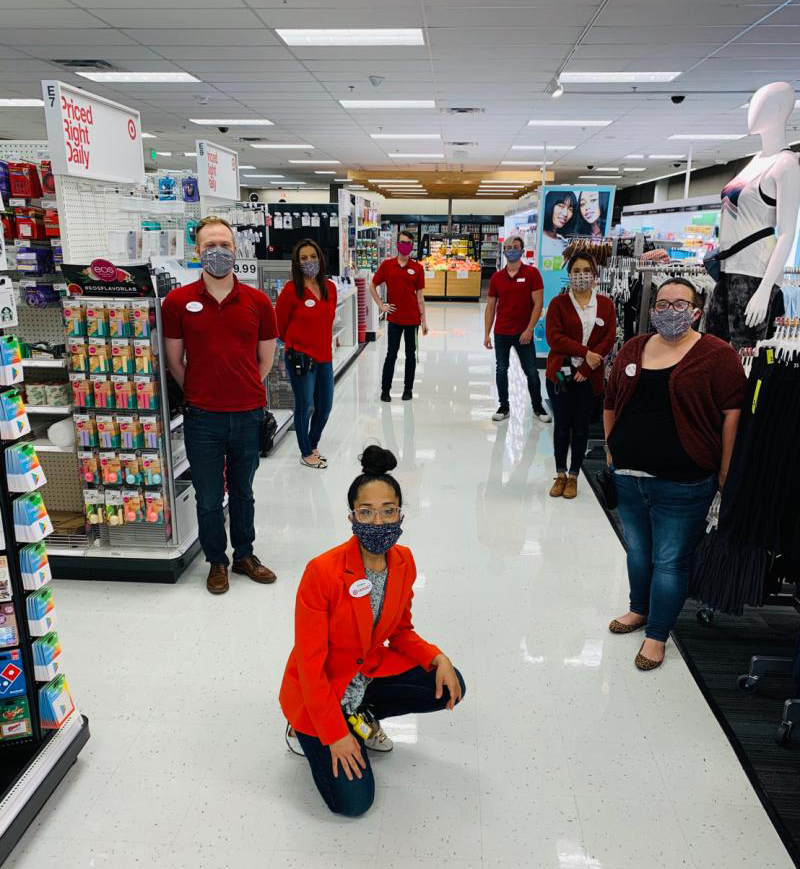With the US in a precarious position when it comes to racial, gender and LGBTQ+ equity, businesses around the country are taking steps to both diversify and show their support for these groups. Food retailers including Walmart and Target have made promises about leveling the playing field for employees and executives, and others are pledging money and manpower to organizations that support these groups.
What they’re doing
Following the death of George Floyd in Minneapolis and the civil unrest that followed, many food retailers stepped forward to take a stand against systemic racism and other inequalities. Walmart, for example, committed $100 million to create a center on racial equity and has also doubled down on hiring more people of color at all levels of the company.
Similarly, Target has committed $10 million to advance racial equity in local communities through donations to partners such as the National Urban League and the African American Leadership Forum. The retailer also pledged to increase representation of Black employees across the company by 20% over the next three years while also making public a report on the racial and gender identities of employees across the company.
Throughout the summer, Iowa-based Hy-Vee donated nearly $500,000 to organizations working toward racial unity and equality, including the NAACP, Urban Dreams and the Negro Leagues Baseball Museum in Missouri. The retailer has promised $1 million and 1 million volunteer hours toward the cause, with CEO Randy Edeker saying in a press release, “There are times when actions speak volumes and when actions can help to create real, long-lasting change — and for us, this is one of those times.”
“All those who call Hy-Vee home — whether it be an employee, customer or supplier — should and will feel welcomed, included and appreciated. Anything less is unacceptable,” he continued.
Kroger, which was a top performer on this year’s Axios Harris Poll 100 for taking meaningful action in support of racial equality, has launched a $5 million fund to help improve racial diversity and inclusion. The company has further plans to educate employees and leaders while also encouraging open dialogue on issues related to racial equity.
The Fresh Market and Food Lion have also financially supported civil rights organizations, and the former plans to conduct unconscious bias training for all employees while also focusing on hiring a diverse workforce and mentorship. Food Lion will also address racial equity issues throughout the company.
Going a step further, many grocers are also taking steps to ensure diversity on their shelves. Meijer is set to host a Supplier Diversity Summit this November that will allow people of color, LGBTQ, female, veteran and disabled business owners to pitch their products directly to the grocer. Dollar General also held a summit last month to give companies holding diversity certificates — such as Women Business Enterprise or Ethnic Minority Owned — the opportunity to meet with the company’s category managers and buyers.
Keeping up the momentum
Strides are being made to close the minority gap, though many executives still recognize the need for continued work and conversations. Albertsons President and CEO Vivek Sankaran explained in a news release that change will come from conversations among friends, students, business leaders and elected officials who can come together to find ways to combat systemic racism and push for lasting change.
“Racial justice and equality cannot be achieved by people returning to the status quo. We must intentionally open a door to lasting change across our country,” Sankaran said, adding, “We will be part of the solution by helping our communities lay the foundation for racial equality and social justice.”
Likewise, Walmart’s McMillon knows retailers need to go a step further when it comes to making lasting changes — and even go beyond the store to do so. “To influence and lead change in society more broadly, we are going to invest resources and develop strategies to increase fairness, equity and justice in aspects of everyday life,” he said in an email to associates. “We will find the natural overlaps between Walmart’s core business and society’s larger needs that perpetuate racism and discrimination.”
For Kroger CEO Rodney McMullen, one of the keys to moving forward is listening. “To become a greater part of the solution, we believe the most important next step is to listen,” he said in a release. “We’re creating more opportunities for our associates to openly share their thoughts and feelings about their experiences with discrimination – and for our company and leaders to more deeply and deliberately listen.”
Related stories:
- The way forward: What consumers are cooking at home
- How the specialty food industry is faring in the era of COVID-19
- Understanding what today’s eco-conscious food consumers want
________________________________________________
If you enjoyed this article, you can sign up for Consumer Brands SmartBrief or the FMI dailyLead to get news like this in your inbox. For even more great news content, sign up for any of SmartBrief’s 275+ free email newsletters today, free.
